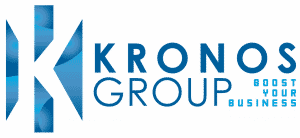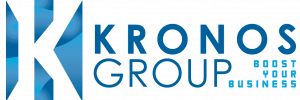Can project management training drive the widespread adoption of robust ethical standards?

Summary
While the concept of ethics governing business policies, practices, and processes has been around for decades, it has experienced a resurgence in recent years.
This new focus on ethics is largely motivated by the increased transparency and availability of information that digitalisation creates.
Ethical standards go beyond widely applicable laws and regulations that govern every business, and help set a company apart in qualitative ways. A company’s ethics can help form a competitive advantage and gain the trust and loyalty of a target audience.
It is not enough, however, to simply announce new ethical standards and take compliance with these standards for granted.
The challenges of maintaining widespread ethical standards: There is a risk of businesses promoting robust ethical standards without taking concrete steps to ensure that every aspect of business operations are upholding these measures. In fact, 79% of respondents to a survey shared that they experienced retaliation for speaking out against unethical behaviour they witnessed. Training can overcome this challenge.
The value of project management training in achieving ethical standards: Because of the higher value addition project management creates—and the pool of talent and innovation it brings together from across all business operations—training rooted in ethical standards can deliver the most value when applied to this critical function.
If a company is aiming to implement robust ethical standards, training that is aimed at the project management function is a direct route to achieving this goal on an accelerated timeline.
There are many factors influencing how a business chooses to position itself in the marketplace.
While quality, price, customer service, technology, and other internal factors have a lot to do with a company’s essential success—a factor that has grown in popularity in recent years has been ethical standards.
While the concept of business ethics first entered the corporate environment in the 1960s, alongside a more consumer-based environment and their focus on social issues, the recent spike in popularity is influenced heavily by the accessibility that consumers are afforded into a business’ processes and values.
Digitalisation has brought transparency to the business landscape and consumers have now come to expect transparency from the companies they invest in. Purchasing decisions are now often inspired by how closely a company is able to align with the values and ethics of its customers.
Although laws and regulations provide a framework of governance within which all companies must operate, ethical standards allow a business to set itself apart from competitors.
A business that showcases, prioritises, and displays strong core ethics immediately gains trust with its audience. This, in turn, helps attract more customers, increasing a company’s market share, boosting customer loyalty, and ultimately improving bottom lines.
To enjoy these benefits, however, a company must be able to not just promote robust ethical standards but also be able to implement them within the company from the ground up.
The challenges of maintaining widespread ethical standards
While ethical standards seem like a set of policies a company can derive from decision-makers and put in place easily, this is not always the case.
The Global Business Ethics Survey of 2021 revealed that out of 14,000 employees working in over 10 countries, 49% had observed misconduct, 22% would categorise some of the behaviours they had seen as unethical, and 86% of them shared that they had reported the behaviour they had observed.
The survey goes on to reveal that out of this percentage, 79% had experienced retaliation for their report.
This showcases a gap within the inherent culture of a business that ethical standards are falling through. It is not enough for top decision-makers to announce ethical standards and expect the rest of the company to adapt accordingly.
If fear of retaliation is holding employees back from reporting the unethical behaviours they observe, it becomes clear that the company in question must do more to support the widespread adoption of ethical standards.
If ethical standards have only been superficially adopted in order to gain a competitive edge or the company culture is not conducive to maintaining these standards, a company must make changes.
This is where training emerges as a possible route for a more ethical business.
The value of project management training in achieving ethical standards
Training allows for new ideas, concepts, and techniques to be introduced into a business directly through the teams that stand to benefit the most from them.
Critical functions like project management are among the most important targets for more ethical operations since they have a much more direct impact on a company’s growth objectives and capacity for innovation.
Project management is a higher value-added business function that brings together teams from all over the company to complete a project on either a short or long timeline. This means that ethical priorities like diversity, inclusion, eco-consciousness, respect, and effective communication can be practised microcosmically within a project team while still reaching a large cross-section of a company’s operations.
Training is more effective than simply changing company policies and expecting the entire corporation to follow suit. This is because training can showcase how these values can be applied and put into practice.
Introducing ethical standards through project management training will also help ensure that the innovative arm of your business is focusing on the future and organising resources appropriately.
Investing in project management training that centralises ethical standards can encourage team members to see the company’s ethical priorities as a key growth driver in the future.
It also showcases an organisation’s willingness to invest in its people; a factor that will be noted by your teams and boost morale and company loyalty across the board.
Invest in the future with project management training
As businesses and industries move forward, there is no doubt that ethical standards that can respond to the priorities of the global landscape will continue to grow in demand.
Whether a company turns to project management advisory to prepare for a more ethics-focused future or relies on internal transformation alone, the sooner corporations change, the more quickly they will enjoy the higher value-added benefits this transformation brings.




